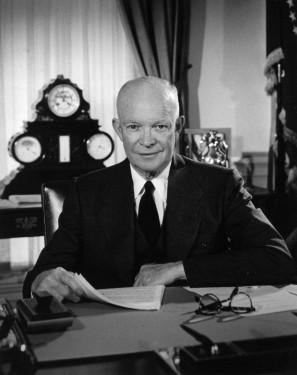About Me
Followers
Powered by Blogger.
Wednesday, July 10, 2013
And Wednesday after Jeopardy!
The New York Times reported today that televised prime time presidential addresses are mostly a thing of the past. Fifty years ago, if a president wanted to communicate an important message to as much of the nation as possible, an Oval Office speech interrupting regular network programming was the way to go. Now? Not so much. We have so many other ways to occupy our time than watch the president, from hundreds (thousands?) of cable channels, to the infinite world of the internet.

Compared to the good old days when network television dominated American screen time, a fraction of us watch live prime time presidential speeches today. Does this mean people don't care about the presidency? What the president says? Thinks? Perhaps. Has the president given up trying to communicate with the American people? Certainly not.
We learn what's on the president's mind through a variety of media, some of which did not exist five years ago, and often on our own time and at our own convenience.
At the grocery store once, a woman stopped me and asked if I was Phil Waite. "You don't know me," she said, "and I attend Waterford Mennonite, but I watch the College Mennonite telecast at Greencroft every Wednesday after Jeopardy."
The worship equivalent of the prime time Oval Office speech is the sanctuary on Sunday morning. But like the presidential speeches on network television, the saints gathered on Sunday morning are an increasingly small percentage of the whole worshipping community. At College Mennonite, most of us engaged in worship are not in the sanctuary, and many of us or not participating on Sunday morning.

Some of us listen on the radio before coming to Sunday School. Others watch at Greencroft. Travelers sometimes listen to the WGCS broadcast on their smart phones. Snow birds gather in Florida to watch on-line. Some of us on Sunday morning have never been to College Mennonite, or even to Goshen.
I put on my chicken little voice from time to time and complain about the decline in worship attendance. In some ways decline is a more hopeful frame because it leaves open the possibility of going in reverse, restoring what used to be. But restoring what used to be is not a choice available to us. Not only has the world around us changed, we have changed. Maybe a more helpful response is to take a step back and observe change, not decline, and to consider what new opportunities these changes bring.

Compared to the good old days when network television dominated American screen time, a fraction of us watch live prime time presidential speeches today. Does this mean people don't care about the presidency? What the president says? Thinks? Perhaps. Has the president given up trying to communicate with the American people? Certainly not.
We learn what's on the president's mind through a variety of media, some of which did not exist five years ago, and often on our own time and at our own convenience.
At the grocery store once, a woman stopped me and asked if I was Phil Waite. "You don't know me," she said, "and I attend Waterford Mennonite, but I watch the College Mennonite telecast at Greencroft every Wednesday after Jeopardy."
The worship equivalent of the prime time Oval Office speech is the sanctuary on Sunday morning. But like the presidential speeches on network television, the saints gathered on Sunday morning are an increasingly small percentage of the whole worshipping community. At College Mennonite, most of us engaged in worship are not in the sanctuary, and many of us or not participating on Sunday morning.

Some of us listen on the radio before coming to Sunday School. Others watch at Greencroft. Travelers sometimes listen to the WGCS broadcast on their smart phones. Snow birds gather in Florida to watch on-line. Some of us on Sunday morning have never been to College Mennonite, or even to Goshen.
I put on my chicken little voice from time to time and complain about the decline in worship attendance. In some ways decline is a more hopeful frame because it leaves open the possibility of going in reverse, restoring what used to be. But restoring what used to be is not a choice available to us. Not only has the world around us changed, we have changed. Maybe a more helpful response is to take a step back and observe change, not decline, and to consider what new opportunities these changes bring.
Subscribe to:
Post Comments (Atom)

1 comments:
In my reading this week, I read: In a higher world, it is otherwise. But here below, to live is to change, and to be perfect is to have changed often. John Henry Newman
Post a Comment